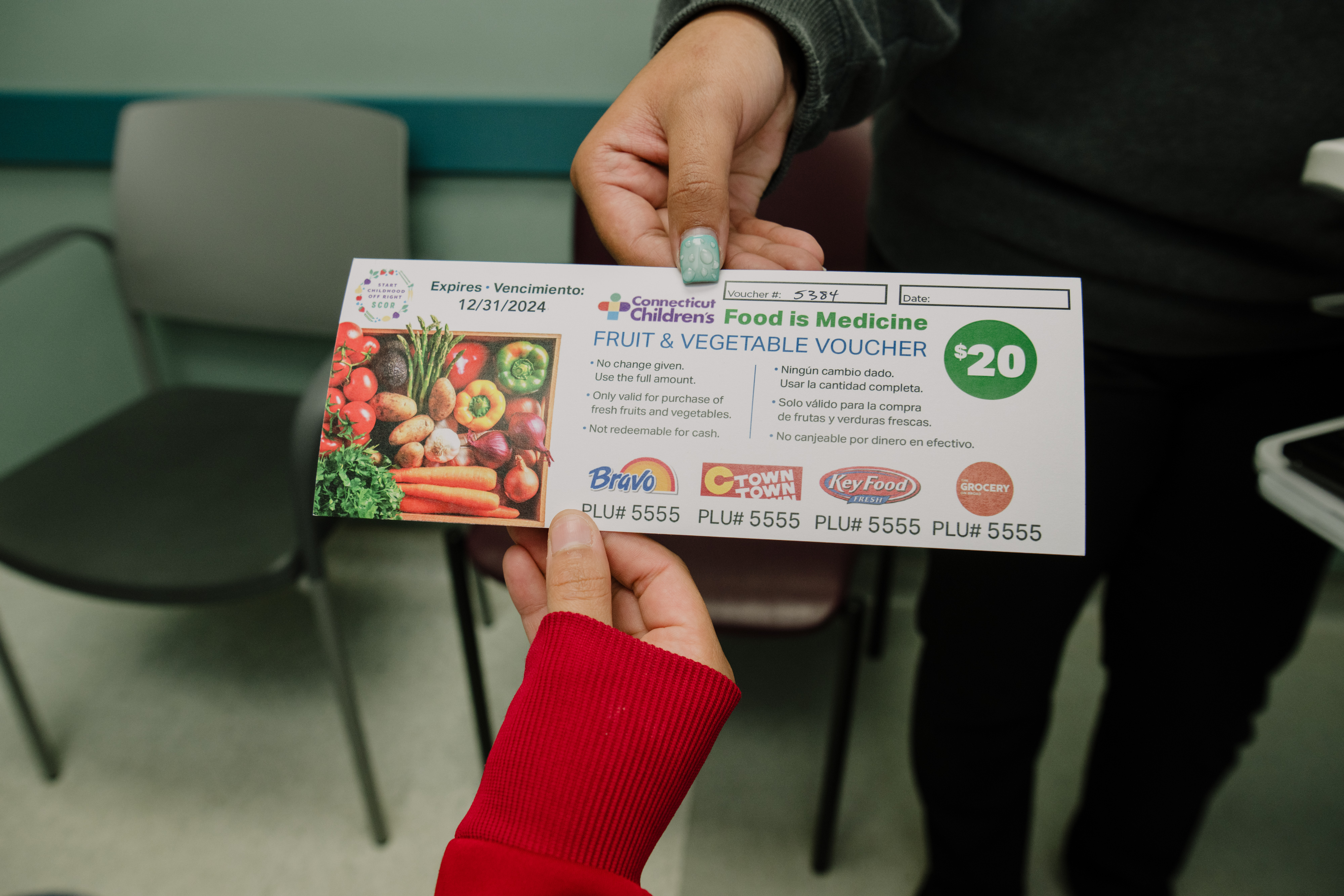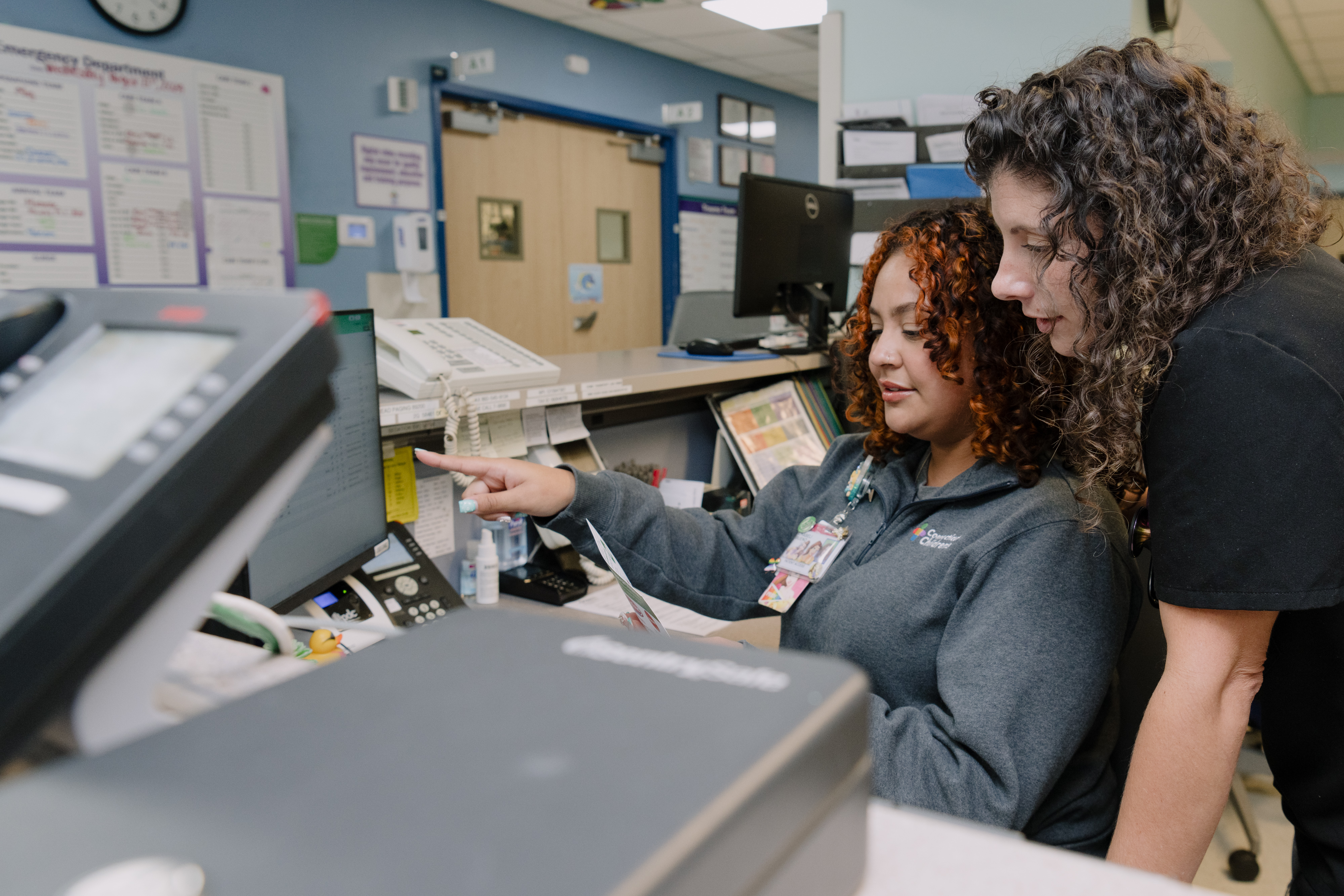With food insecurity on the rise in Connecticut, the Start Childhood Off Right program, part of Connecticut Children's Office for Community Child Health, is dedicated to providing essential support to families in need.
Food insecurity—defined as the economic and social condition of having limited or uncertain access to adequate, nutritious food—remains a significant driver of health inequities. According to recent data from Feeding America, food insecurity is rising in Connecticut, disproportionately affecting Black and Hispanic households. Alarmingly, approximately 1 in 6 children in the state now experience food and nutrition insecurity. Research has shown that food insecurity during childhood is linked to adverse health outcomes, including anxiety, depression, developmental issues, and challenges in school. Addressing this, the first pillar of the White House Conference on Hunger, Nutrition, and Health focuses on improving food access and affordability for all families.
In Connecticut Children’s Emergency Department, our recent study revealed that about 40% of the families we serve face food insecurity. Programs like Produce Prescription, which not only address food insecurity but also promote healthier food choices, are essential in our efforts to support these families. The Start Childhood Off Right (SCOR) produce voucher program, in partnership with our health information and patient registration systems, has expanded its reach by integrating food insecurity screening into the registration process.
Importantly, this information is now documented in Epic, an electronic health record (EHR) system widely used in healthcare settings across the United States. Epic serves as a central platform for managing patient information, from medical history to treatment plans, and is integral to delivering coordinated care. By documenting food insecurity in Epic, healthcare providers can track the prevalence of this issue. This documentation not only helps in identifying trends and needs but also ensures that food insecurity is recognized as a vital component of a patient’s overall health. Additionally, food resources are included in the after-visit summaries, offering a tangible way for families to access nutritious options.
In Connecticut Children's Hartford Primary Care office, the situation is even more dire, with food insecurity rates approaching 65%. Here, care coordinators and social workers play a crucial role in distributing vouchers and connecting families with additional food resources. Each child in a family receives a produce voucher, and over $4,500 in vouchers have been redeemed in just the past five months. The impact of this support is profound; one child shared that his greatest wish was to help his mother provide food for their household. When he received the voucher, he was overwhelmed with emotion, so excited to be able to help his family.
Currently, food insecurity screening in Primary Care is done on paper, but plans are underway to transition this process to Epic to streamline and standardize it. Given the significant health disparities associated with diet-related diseases such as diabetes, hypertension, and heart disease, achieving nutrition security must be a top priority for healthcare systems. Integrating these efforts into platforms like Epic is a logical and necessary step toward addressing these inequities and ensuring that every child has access to the nutrition they need to thrive.


